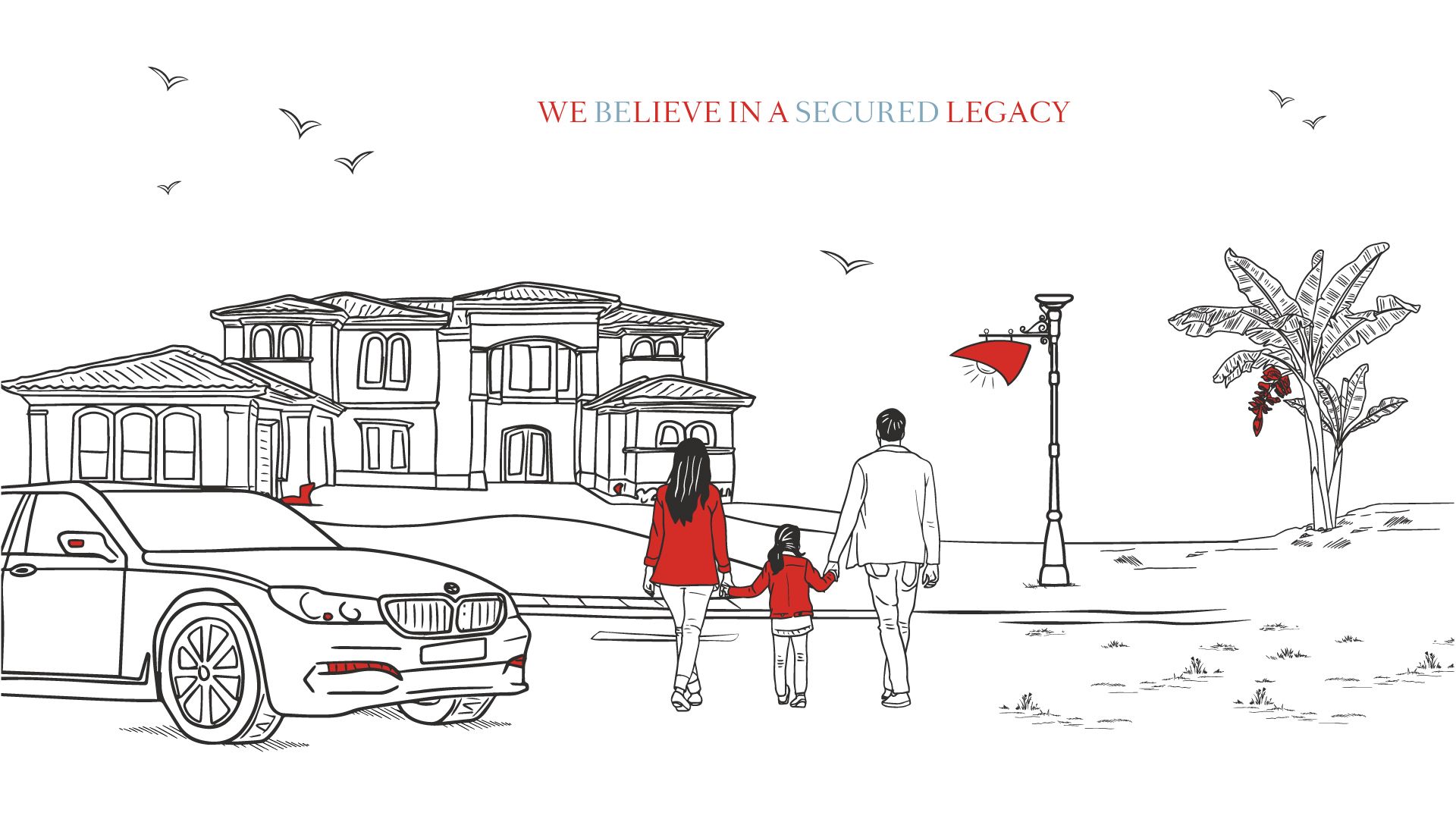
PILLAR 4: SOCIAL RESPONSIBILITY
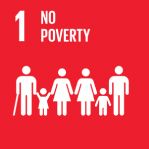
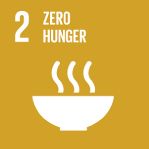
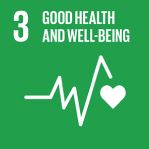
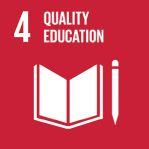
Figure 23: Strategy for the development of Social Responsibility Pillar (Main projects only)
Our Social Responsibility pillar is catered by the AfrAsia Foundation (the “Foundation”). Established in May 2016, the Foundation funds sustainable projects through its three main pillars: Education, Health and Environment with the aim to help build thriving communities in which we operate. All projects under the Foundation are underpinned by the Sustainable Development Goals (SDGs). In 2019, the Governance body consisted of 7 council members who meet on a quarterly basis. All decisions (including allocation of funds) are taken through a majority of voting by the council members.
1 NO POVERTY
a. 100% beneficiaries of AfrAsia School are from underprivileged background
b. 71% teaching staff and non-teaching staff are from underprivileged background and have been trained by professionals
2 ZERO HUNGER
a. Nutritional Programme
(i) 3 meals per day for AfrAsia kids during school days
(ii) 38 children concerned in 2019 and 49 children from January to July 2020
(iii) 100% of full-time staff since February 2020 benefit from the programme three times a week
(iv) 37 families in 2019 and 45 families from January to July 2020 under this programme on a case to case basis during crisis (e.g. cyclone, COVID-19 etc)
3 GOOD HEALTH AND WELL-BEING
a. AfrAsia Kids benefits from the following:
(i) medical follow-up with a nurse every two weeks
(ii) Health check-up from doctors at least twice a year
(iii) Psychological support also provided
(iv) Screening of parents by “Association pour la Promotion de la Santé” on a case to case basis
4 QUALITY EDUCATION
(i) 24 children successfully graduated from the AfrAsia School pre-primary school in 2018 and 2019 to join Public primary schools.
(ii) Enrolment at AfrAsia School increased by 37% from 30 to 41 from 2018 to 2020 with an average presence rate of 89% from July 2018 to March 2020.
(iii) After-school classes provided to former AfrAsiakids. In 2019, 8 children benefited from this programme (conducted in Vacoas) and in 2020, 11 children are benefitting from same in Curepipe.
(iv) 26 sessions of Parent Empowerment Support Programme have been provided to the parents of our beneficiaries on topics ranging from prevention of abuse against children to awareness on diabetes.
Fundraising activities
The main fundraising activities by the AfrAsia Foundation consists of:

1. Charity Dinner
Set in the week of the AfrAsia Bank Mauritius Open (ABMO), a golf tournament organized by the Bank, AfrAsia Bank Charity Dinner. In 2019, MUR 1,323,530.50 was raised through this dinner.
2. Sponsor an AfrAsia Kid
This programme was launched during ABMO 2018, to offer staff and clients the opportunity to make a priceless investment by positively changing the life of AfrAsia School’s beneficiaries. For the period of July 2019 to June 2020, MUR 360,831.95 was raised through the participation of 92 staff and 5 clients.

Pillar 1: Education
In collaboration with the NGO, Ti Rayons Soleil and the Decentralised Cooperation Programme of the European Union (DCP/EU), in 2017, the AfrAsia Foundation launched the AfrAsia School (AS), a Long Life Education centre (LLEC), located in Curepipe. The centre offers a safe environment that provides free access to lifelong learning opportunities, including a pre-school and afterschool programme to vulnerable and underprivileged children during school days and a Parent Empowerment Support Programme (PESP) to their parents/responsible parties.
“I love being part of an organization that values the SDGs and implements projects that brings value to our society. AfrAsia Foundation acts as the social arm of the Bank since 2016 and our vision of shaping a world of difference is well translated though projects from our 3 main pillars; Education, Health and Environment. Our greatest achievement, for me, till date remains the AfrAsia school located in Curepipe that provides support and education to children from underprivileged community. Seeing the progress of the AfrAsia Kids is a great motivating factor for me as an employee and one of the sustainability champions for the Bank. This also inspires our clients to invest their time and money to this noble cause through participations in various activities organized by the Foundation and CSR donations”.

Isabelle Francois
Senior Relationship Manager
Sustainability Champion for Global Business Department
AfrAsia School
AfrAsia School is aligned with The National Curriculum and integrates holistic teaching approaches based on the Montessori methodology. 71% of teaching and non-teaching staff, who have been recruited are from vulnerable background and they have been trained by professionals. Since 2018, 62 children have been enrolled in their Early Childhood Educational Programme (ECEP) and 57 families for the Parent Empowerment Support Programme (PESP). As per figure 24, a 37% increase was recorded in the number of children enrolled at AfrAsia School from 2018 (30) to 2020 (41).

Figure 24: Number of children enrolled at AfrAsia School from 2018 to 2020
Enrolment of a child to AfrAsia School is based on the following criteria:
- Family living in Cité La Caverne Vacoas and Curepipe which have been defined as the catchment areas of the AS.
- Willingness of parents/responsible parties of children to engage fully in projects put forward by the AS.
- Screening and follow up by social workers from Ti Rayons Soleil for a minimum of three months before the enrolment of the children.
The families which are eligible to be enrolled in the list of specific social criteria has been established by Ti Rayons Soleil through several meetings with the Ministry of Social Integration, Social Security and National Solidarity. The Montessori Method and holistic approaches focusing on the wellbeing of each child’s mind, body and spirit are used to teach the national curriculum of the ECCEA, Early Childhood Care and Education Authority, which falls under the aegis of the Ministry of Education, Tertiary Education, Science and Technology.

Figure 25: Attendance rate of AfrAsia School from July 2018 to March 2020 (Note that post-March 2020, Mauritius was in confinement due to the outbreak of COVID-19).
The attendance rate (see fig 25) is monitored on a monthly basis and for any identified cases of absenteeism, the Social Workers trigger the protocol established by AS to address poor attendance, and try to find solutions to enable the child to return to school. Solutions include meetings and follow ups with parents.
22 children successfully graduated from the AfrAsia School pre-primary school in 2018 and 2019 to join Public primary schools.
After-school classes are aimed at helping AfrAsiakids who are now in public primary schools with their homework, while ensuring that they have well adapted to their new learning environment. Any difficulties faced by the kids are tackled by a close collaboration between the AfrAsia School teachers, their current teachers and parents/responsible parties. Moreover, to continue the pedagogy of AfrAsia School, special activities based on the Montessori method is also being taught. Follow-ups will continue until the children reach the secondary grades. AfrAsia Foundation is currently developing a programme to pursue the follow-ups until the children become financially independent. In 2019, 4 children benefited from this programme (conducted in Vacoas) and in 2020, 14 children are benefitting from same in Vacoas and Curepipe.
The Parent Empowerment Programme (PESP) is a set of tailor-made sessions monitored by social workers, psychologists and qualified trainers to better equip parents to understand their feelings and responsibilities towards their children. In this way, they will be able to provide adequate support to their children, resulting in better development physically, emotionally and educationally. Moreover, these sessions helped to identify the weaknesses and any other issues faced by parents. They were then empowered to tackle same and find solutions to get out of the vicious poverty circle. Moreover, along with core trainings, LLEC set up more specific workshops that impact directly on a community, for example young mothers and single parents’ family workshop. These initiatives impact positively on the relationship SCHOOL-CHILDREN-PARENT that is a priority for the centre.
Since 2018, through the PESP:
- One parent was employed by Ti Rayons Soleil to work as a cleaner and cook at AS.
- 3 mothers joined a “Women Entrepreneurship programme” in collaboration with Ti Rayons Soleil and Vatel Mauritius - Hotel & Tourism Business School to launch their own businesses;
- 89 parents received the support of the social workers to write their CVs and applied for jobs
- One family benefited from the financial support of AS to repay part of their debts. A moral agreement was established whereby the parents were asked to volunteer in any activities organised by AS throughout the scholar years of their kids.
The attendance rate in these sessions is closely monitored to identify whether any correction action is needed. The increase in participation in the PESP can be seen following the social follow-up that have been set up with the parents. The workshops proposed encourage good parenting practices, positively strengthen their role as a parent and provide them with adequate tools that help them in daily parenting. The LLEC proposes free babysitting services for children, food support during any workshops and transport services for workshops after working hours. These strategies help in the increase of the attendance rate.
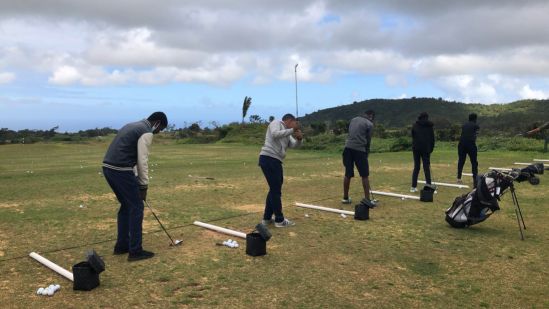
The AfrAsia Golf Academy (AGA) exists since 2015. This project which falls under the AfrAsia Foundation has as objectives to help underprivileged children to understand and play Golf. Our CSR approach encompasses children education and this program is aimed at identifying talented young golfers and providing them professional coaching framework. Since its inception, over 50 children have completed the program and two have been selected to undergo a professional golf training, with the hope that they can be transformed into golf pros in the years to come. During the AfrAsia Bank Mauritius Open of 2019, the beneficiaries of the AGA enjoyed the privilege to experience a world standard golf competition and meet professionals on the golf course.
AfrAsia School was closed from 23 March 2020 to 03 April 2020 as a result of the decision of the Ministry of Education linked directly to the sanitary lockdown. Ti Rayons soleil set up a series of home-schooling measures through WhatsApp and Facebook messenger platforms to ensure that AfrAsia kids have a series of activities, combining their school routine and situation at home, to minimize the disruption to their daily life.
The teachers of AfrAsia School also developed an educational programme from 07 April 2020 to 01 May 2020 on Youtube. This programme was kept for the second semester as well. The staff were constantly in touch with the parents to guarantee that the children had no queries and the work were being done. Parents-teachers dialogue also revealed that parents actually became closer to their children during the lockdown.
We would like to also highlight the use of formative assessment, that provides feedback to teachers which will allow them to adjust their teaching methods to better meet the needs of the children and the latter understand better what is expected of them.
The psychologist hired for the school used the pandemic as an opportunity to train staff on emotional intelligence via ZOOM.
Pillar 2: Health

Nutritional Programme/Food Support Programme
Concerning the nutritional programme, a three-meal plan has been designed to address the malnutrition problem that the children are facing. The programme has been initiated to cater for the children’s nutritional needs on a daily basis, helping them to become healthier and attain the standard growth curve. Moreover, a nurse conducts screening of each AfrAsia kids to make adequate medical recommendations and a doctor will assist the medical process. (see the “Medical and Psychological Support for AfrAsia kids”).
Social workers from Ti Rayons Soleil identified some families (of our AfrAsia Kids) that were enrolled in our food support programme. These families receive food on a case to case basis during crisis (e.g. cyclone, COVID-19 pandemic).
100% of full-time staff are also benefiting from this programme since February 2020.
Figure 26: Children and Families in the Food Support Programme
Medical and Psychological Support for AfrAsia kids
A nurse visits the school on a monthly basis to monitor the BMI (see Fig 27) of the children and refers them for any further interventions (medical, social etc) required. So far, many cases such as lice, skin problems, etc have been diagnosed and solved.
Figure 27: Comparisons of AfrAsia Kids’BMI (January 2019 versus August 2019)
- Special follow-up was done for children severely underweight, special nutriments were purchased and daily nutritional meals were provided to help them move into the “normal” bracket.
- In cases where the school nurse noticed signs of body infections, follow-up was done with parents and the children were referred to public hospital or health centre of their region.
- The school Nurse advises parents for hygienic care of the children, for example, a sensitisation workshop to prevent lice proliferation
- Life Long Education Centre collaborated with CIDP dermatologist team for a case of severe skin infection. Social workers ensure follow-up with parent.
A psychologist has also been recruited for weekly psychological follow-ups with both children and parents and workshops regarding some observations for the well-being of the beneficiaries. As at date, we have identified several cases of domestic violence, abuse, psychological breakdowns and other social ills that impact directly on the beneficiaries’ family life and that requires intensive follow-up.
Impact of COVID-19 on health pillar
With the lockdown, our beneficiaries were taken by surprise and faced a food crisis. AfrAsia Foundation provided an Emergency Aid Support Programme and food donation to the 44 families under the AfrAsia School project through the Emergency Aid Support Programme. In all, from March 2020 to June 2020, 523 individuals benefited from this special aid.
Pillar 3: Environment
Greening of AfrAsia School
Phase 1
Renovation and transformation of building into AfrAsia School Completed
Phase 2
Extension of AfrAsia School completed on 15 October 2019
Phase 3
Implementation of sustainable technologies within the building On Hold due to Pandemic
Figure 28: Phases of AfrAsia school
The phase 2 of the extension of the AfrAsia Foundation has been completed on 15th October 2019 and launched by AfrAsia Foundation’s chairman on the 13th December. The principles of Sustainable Design were integrated to cater for the following for phase 3 of the school:
- Maximum use of natural lights
- Integration of a rain water harvesting system
- Integration of solar panels on the roof
- Promotion of air circulation within the building
We are currently developing an Educational Game application to introduce the basics of SDGs to children aged between 5 to 12 years old.
The game will consist of 3 levels with 3 sub-levels each:
- Level 1 (SDG 15 Life on land) Soil/land pollution
- Level 2 (SDG 13): Climate change
- Level 3 (SDG 7): Affordable and Clean Energy
The mission of the players will be to save endangered animals affected by pollution and transfer them to a nature reserve. The players will also collect scrap materials by eliminating slimes and robots, which will be recycled in level 3 for the production of machines powered by natural/green energy (e.g. Solar Panels)
Unfortunately, phase 3 of the school extension has been put on hold due to the pandemic.
Internal CSR
In collaboration with our Human Resources department, AfrAsia Foundation takes the lead in several CSR initiatives for the staff of AfrAsia Bank. All initiatives are based on the 3 pillars which guide the actions of the foundation.
Figure 29: Internal CSR
Overview of projets